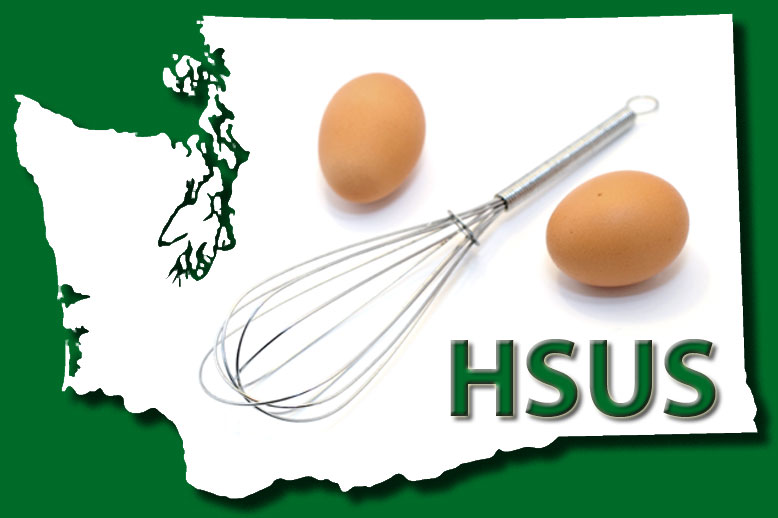A Letter from an Egg Farmer
 When the Humane Society of the United States announced another flavor-of-the-month ballot initiative campaign last week in the state of Washington, people reacted.
When the Humane Society of the United States announced another flavor-of-the-month ballot initiative campaign last week in the state of Washington, people reacted.
One egg farming leader told The Seattle Times he had misgivings about anything related to HSUS: "Based on actions they've taken in other states, it likely will not be anything that egg farmers in Washington could support."
An elderly PETA activist, on the other hand, was über-enthusiastic in a Times letter: "I’ll collect signatures with many other volunteers to make sure this great initiative makes the ballot."
(You probably know what we think.)
HSUS wants to criminalize the production and sale of eggs in the state of Washington that aren't “cage-free.” Even if you prefer to buy cage-free or "free-range" eggs, this is bound to be a raw deal for most consumers in the Evergreen State. One conservative estimate has retail egg prices rising by 25 percent.
Now, egg producers are beginning to recognize that HSUS’s initiative would scramble their farming businesses. One of them wrote to us over the weekend and spelled out just how HSUS's ballot campaign would affect him and his neighbors.
This letter is just one professional's point of view, of course. But it suggests that (at the very least) there's a lot more to this "cage-free" egg business than HSUS is letting on:
Dear HumaneWatch,
All the egg farmers in our whole state are meeting the animal welfare (cage) guidelines of the United Egg Producers. We're providing 67 square inches per bird. HSUS's legislation will force farmers to convert entire buildings to non-cage systems. That's expensive. Consumers will wind up paying for it. And we'll have to provide 216 square inches per bird. That means buying more land or at least erecting new buildings. Again, consumers will see higher prices. Even more so if some of us near the state borders decide to more to Oregon, Idaho, or even Canada.
Each of my houses currently holds 100,000 hens. If that's the norm and if the state has 6 million egg layers, you're talking about 60 houses. Under HSUS's rules, the "converted" houses can only hold 31,000 hens. So you have 60 houses losing 69,000 hens per house. We're talking about telling farmers to get rid of 4.1 million hens.
If we don't build new housing, there's going to be a major egg shortage and consumer prices will go up a lot. The initiative will say no one can purchase eggs that are not produced under the HSUS language. This will even stop interstate trade! If producers in other states don't want to build cage-free housing, who's going to feed Washingtonians? Some of my fellow farmers own layer houses in other states, so under HSUS's law they couldn't even bring their own eggs back home.
But wait—this gets even stupider. HSUS's draft says that we have to provide enough space to avoid two hens touching one another. Animals of all kinds like to touch and be in close contact with one another. Who could be so stupid as to propose such language?
The public is going to be presented with all sorts of disparaging HSUS videos (which sure as hell don't reflect how I farm), and the feel-good messages are going to drive them to the polls. As we learned from Californians in 2008, this is really hard to overcome.
This is a clever economic game that HSUS is playing. Farmers might only convert their current housing, which means fewer chickens will be laying eggs. (According to some HSUS leaders, that's the whole idea.) Farmers could also choose to go on a building spree, taking on all kinds of new debt in the process. Or, they can simply move somewhere else.
No matter how you slice it, egg prices go up, up, up. And all these options are good outcomes from the animal-rights perspective. But they’re not so good for consumers—or for the chickens. (Remember them?)



